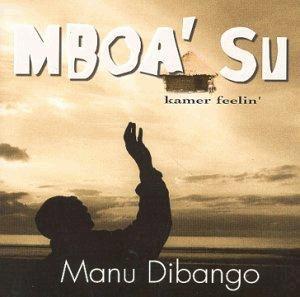
| Artist: | Manu Dibango |
| Title: | Mboa' Su (Kamer feelin') |
| Released: | 2000 |
| Label: | Groupe JPS |
| Time: | 41:48 |
| Producer(s): | Noel Ekwabi |
| Appears with: | |
| Category: | World Music |
| Rating: | **........ (2/10) |
| Media type: | CD |
| Purchase date: | 2001.01.09 |
| Price in €: | 12,99 |
| Web address: | www.manudibango.net |